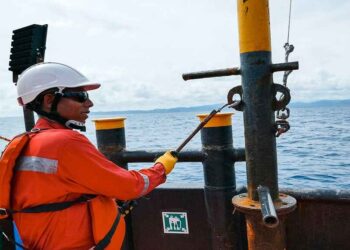Adapting to an evolving supply situation is on the minds of many refiners in the United States, two downstream oil and gas pros recently told DownstreamToday.
“Overall, refiners face a challenging marketplace and it seems that many will look for new sources of raw material and invest in equipment that provide the flexibility to process a wider variety of materials and products,” said Ken Daigle, director of safety with BP’s Safety & Operational Risk (S&OR) group.
“The advent of shale and tight production is posing both opportunities and challenges,” added Tom Franklin, director of Tata Consultancy Services’ Oil and Gas Center of Excellence. “Lower natural gas production helps with margin pressures. Some of the crude produced in tight oil operations has the opposite effect.”
The downstream industry is trying to balance the competing margin pressures from crude oil and natural gas by focusing on three things, Franklin said. Specific measures include:
- increasing efficiency by moving to more flexible refining technology that allows for different crude slates and enhances responsiveness to changes in market demands
- moving to more integrated supply chain models, which enable the industry to better predict and respond to market changes and increase efficiency
- deploying point technology to increase efficiency – such as better energy utilization – at given points in the overall process.
Aside from grappling with the imbalance in margin pressures, the domestic downstream industry is taking steps to address operational challenges stemming from a changing workforce and cyber-security, noted Franklin.
A Forum for Sharing Experiences, Identifying Solutions
Daigle and Franklin will be among the more than 60 senior decision-makers in the U.S. downstream oil and gas sector who will meet deep in the heart of Texas late next month to gain new insights about the above industry trends.
“We’re all very excited to be bringing together the top refining executives in the U.S. for an exclusive two-and-a-half-day summit where we will be talking about the key challenges in the industry,” said Tom Taber, Americas product director with GDS International. GDS will host its inaugural Next Generation Downstream Summit US (NG Downstream US) Oct. 27-29 at the Omni Barton Creek Resort and Spa in Austin, Texas.
The summit’s program will feature a special emphasis on safety and security, said Taber. Daigle will lead a presentation on the initiatives that operating companies have taken to achieve personal safety performance improvement, most notably human performance factors and behavioral safety. In regard to security, Valero Energy’s global security manager will examine how the public and private sectors are collaborating to enhance security measures at high-risk inland energy facilities.
NG Downstream US will also feature thematic roundtable discussions highlighting refinery initiatives and innovation, engineering, technology and monitoring and operations management. In addition, keynote sessions will examine the following topics:
- Defining growth and future needs of downstream oil and gas companies
- The pressing need for innovation to revitalize downstream products and services
Although the summit’s program is packed with a number of high-level presentations and discussions, GDS is including plenty of time on the agenda for valuable networking as well, said Taber. Operating companies that will be represented at the summit include Anadarko Petroleum Corp., BP, Flint Hills Resources, Shell, Total, Valero and United Refining Co. Capstone Turbine Corp., Emerson Process Management, 3M, Invensys and United Rentals are some of the vendors and service companies that will be on-hand at the event as well.

















































